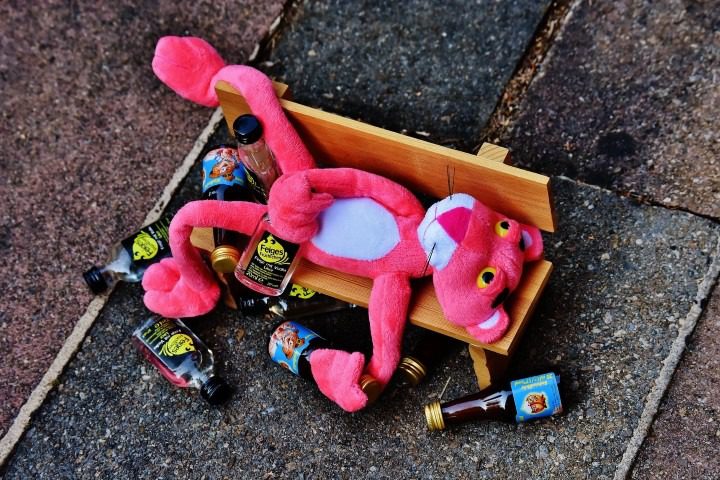Alcoholism – What “Games” Do Alcoholics Play?
Alcoholism within Berne’s central thesis brings the idea that alcoholics engage in what he calls “games,” which are repetitive and predictable patterns of behavior designed to satisfy emotional needs. These games are often manipulative and can be harmful to the individual and those around them. Eric Berne’s book “Games That Alcoholics Play” offers a unique perspective on the behavior of individuals struggling with alcohol addiction.
One of the most striking insights from Berne’s book is the idea that alcoholism is not just a physical addiction, but also a psychological one. He argues that alcoholics use alcohol as a means of escape from their emotional pain and that they often play games to get the attention and validation they crave.
For example, Berne describes a game called “Isn’t It Terrible,” in which an alcoholic complains about his life and seeks sympathy from others. This game is a way for the alcoholic to validate his negative self-image and gain the attention of others. Another game Berne describes is “Look What You Made Me Do,” in which the alcoholic blames others for his behavior, effectively absolving himself of responsibility.
Berne’s analysis of these games offers valuable insights into the underlying emotional needs of individuals struggling with addiction. By understanding these needs, psychotherapists can work to address the root causes of addiction and help their clients develop healthier coping mechanisms.
Why do good guys always “finish last”?
Additionally, Berne’s emphasis on the importance of personal responsibility is crucial in the context of addiction treatment. By recognizing the role individuals play in their own addiction, they can take responsibility for their behavior and work toward positive change.
Overall, “Games Alcoholics Play” is a valuable resource for psychotherapists working with individuals struggling with addiction. Berne’s insight into the emotional and psychological factors that underlie addiction can help therapists develop effective treatment plans and support their clients on their journey to recovery.
A few examples of games that Eric Berne describes in his book “Games Alcoholics Play”:
- Isn’t It Terrible: In this game, the alcoholic complains about his life and seeks sympathy from others. By portraying himself as a victim, the alcoholic reinforces his negative self-image and attracts attention from others.
- Look What You Made Me Do: In this game, the alcoholic blames others for his behavior, effectively absolving himself of responsibility. For example, the alcoholic might say, “I only drink because you stress me out so much.”
- Wooden Leg: In this game, the alcoholic pretends to be disabled by his addiction in order to avoid responsibility. For example, the alcoholic might say, “I can’t help but miss work today. My alcoholism is making it impossible for me to function.”
- If it weren’t for you: In this game, the alcoholic blames his addiction on someone else. For example, the alcoholic might say, “If my partner hadn’t left me, I wouldn’t have started drinking so much.”
- Hit Me: In this game, the alcoholic provokes others to criticize or reject him. By provoking negative reactions from others, the alcoholic reinforces his negative self-image and confirms his belief that he is unlovable. For example, an alcoholic might deliberately start an argument with his partner or boss.
These are just some of the examples of games that Eric Berne describes in his book. By understanding these patterns of behavior, psychotherapists can help their clients develop healthier coping mechanisms and break free from the destructive cycle of addiction.

Keywords: alcoholism, alcohol, addiction, how to stop drinking, psychotherapy zagreb, eric berne, transactional analysis, games played by alcoholics, Licensed therapist near me in Manhattan NYC, Affordable therapy services in New York State, Holistic psychotherapy sessions in NYC, Somatic Experiencing therapy for trauma recovery in New York City, NARM therapy in Brooklyn, Licensed couples therapy in Manhattan, Gestalt therapy near me in NYC, Marriage counseling in Queens NYC, Therapy for anxiety treatment in NYC, Experienced psychotherapist in New York, Licensed psychotherapist near me in NYC, Somatic Experiencing therapy sessions in New York, Trauma therapy and counseling in Manhattan, Gestalt therapy sessions in New York City, Therapy sessions for emotional regulation in New York, Trauma therapy near me in Brooklyn New York, Licensed mental health therapist in Manhattan NYC, Depression therapy in New York, New York City therapist experienced in PTSD treatment
*Photo: GettyImages
*Contact: Make an appointment
*For companies: Creative manager
Psychosomatics vol. 6 – Anorexia – What does the body tell us?








